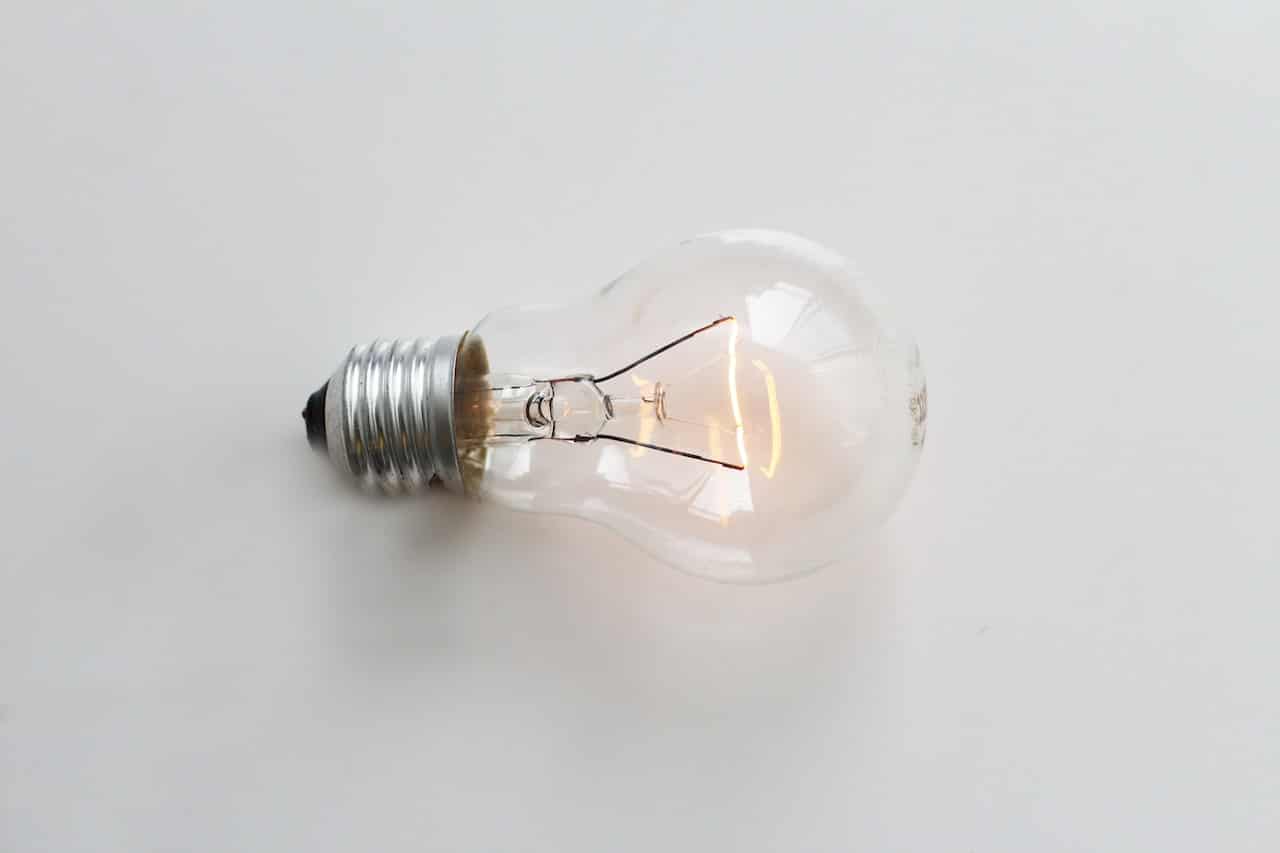You can read a credit report by carefully reviewing the information for accurateness on each section of the report. Each of the credit bureaus organize information differently, but you should review these 5 sections: personal information, employer history, credit history, public records, and credit inquiries.
Reading your credit report is essential to better understand your creditworthiness and spot errors that damage your credit rating. But only 33% of Americans check their credit report annually.1 If you haven’t looked at your credit report before, it may be a little challenging to navigate.
Below is more information on how to read your credit report and more details on the significance of your credit reports.
How Can I Get a Credit Report?
There are three credit reports you can pull, one from each of the three major credit bureaus. It is a good idea to make sure you get a copy from each credit bureau to check for accuracy.
Due to the fair credit reporting act, you are entitled to one free credit report from each major credit reporting agency once a year. You can pull these free credit reports at once. The three major credit bureaus for American consumers are:
- Equifax
- TransUnion
- Experian
Once you get your credit reports, you can go over them. Below is how you can read your credit report from beginning to end to get the most information.
The Role of Credit Reporting Agencies
Credit reporting agencies collect information on your credit activities, such as your credit accounts, payment history, and credit limits. This data is used to compile your credit reports, which affect your FICO score.
Each credit bureau — Equifax, Experian, and TransUnion — keeps separate credit reports, and it’s their job to ensure this information is accurate and up-to-date. Your credit score, a crucial factor in financial opportunities, is affected by the information from these reports.
Credit reporting agencies directly impact your financial health. It’s vital to regularly check your reports for accuracy, as they hold the key to your credit score and financial future.
How To Read a Credit Report?
Your credit report may look slightly different depending on which bureau’s report you are looking at, but each will have five sections. Here are the five sections and what information they have:
Credit History
Your credit history will take up the most space on your credit report is one of the most critical parts of it. Factors like payment history, credit utilization, age of accounts, etc., are all included in the credit score algorithm used to calculate your credit score. And this credit score and factors are precisely what lenders look at for a deep dive when you apply for credit.
The different parts of your financial history include:
Payment History and Status
Your payment history has the most considerable impact on your credit scores (35%). Whether you make on-time payments or miss payments, these transactions will show up on your payment history. Missing payments constantly in a short amount of time can substantially negatively impact your credit. In contrast, making timely payments will help you quite a bit. Past due amounts, on-time payments, and late monthly payments may not show up right away but will be there eventually.
Current, Closed, and Transferred Accounts and Lenders
Your current, closed, and transferred accounts will include any credit accounts on which you are or were an authorized user. These accounts will include any joint loans or credit cards. Examples of accounts include mortgages, fixed rate loans, cash advance loans, installment loans, and no credit check loans.
Your accounts and their statuses, along with the lender’s name, will be a part of the history part of your report. Any open, closed, and transferred accounts will remain on your credit report for up to ten years.
Account Balances and Limits
All of your current revolving accounts and standard loan balances will be under the credit history section of your credit report. As you pay off or increase balances, they will be reflected and updated accordingly on your credit report.
Account Dates
Although how old or new your credit account may not seem like something that could be important, it is! Mature credit accounts can help you establish a solid credit history and is something that lenders pay attention to and will be a part of your credit report.
Any negative information like missed payments, accounts sent to collections, etc., will remain on your credit report for up to seven years. Because credit history is the most significant part of your credit report, it is also the place that will likely have errors, if there are any.
A few examples of common mistakes include:
| Type of Error | Description | Potential Impact |
| Personal Information Errors | Incorrect name, address, SSN, or employment details. | Identity confusion, mixed credit files. |
| Account Status Errors | Accounts wrongly reported as closed or open, incorrect dates for account opening or closing. | Affects credit age, credit utilization. |
| Balance Errors | Wrong current balance, credit limit, or account type. | Affects credit utilization, credit score. |
| Duplicate Accounts | Same debt listed more than once, possibly under different names. | Inflates apparent debt, lowers score. |
| Payment History Errors | On-time payments listed as late, or missed payments not reported. | Directly impacts credit score. |
| Fraudulent Accounts | Accounts that you did not open or are not authorized to use. | Indicates identity theft. |
| Data Management Errors | Information from someone else’s credit report mixed with yours. | Affects overall creditworthiness. |
| Inaccurate Reporting of Account Types | Revolving accounts reported as installment accounts and vice versa. | Misrepresents credit mix. |
| Incorrect Inquiry Information | Hard inquiries that you did not authorize. | May indicate fraud, lowers score slightly. |
Your Personal Information
The first thing that you may notice will be your personal information. This information will be your name, social security number, current and previous addresses, date of birth, and an email address. It is always a good idea to review this information, even if it may seem straightforward. Make sure everything is accurate, including spelling, dates, and numbers. Common mistakes include mixing up one person with another and incorrect identity information such as an incorrect social security number.
Employment History
Your employment history or employer history will list your current and previous employers. This information will help lenders determine the type of income coming in each month and whether it is reliable. For example, if you have only had a job for a few months, you may qualify for a small loan. However, for something like a mortgage, you may need to have a job for more extended periods. When reading this area of your credit report, make sure the employers listed match your actual history and that things like dates are correct.
Public Records
Public records for any debt will show up on your credit report, and there will be a section on it. This information will include things like bankruptcies, foreclosures, and repossessions. It should not have any tax liens or other tax-related information. These kinds of records will stay on your credit report for up to ten years.
Credit Inquiries
A lender can conduct two credit inquiries: soft inquiries will not impact your credit scores or show up on your credit reports, while hard inquiries will. Every time a financial institution runs a hard credit inquiry, it will appear on your credit reports. Your credit inquiry section is another spot where you can spot potential identity theft issues. The first step for thieves with your information is to inquire about loans and credit cards that involve hard inquiries. And so, make sure this information is accurate for financial protection.
Why Is It Important To Read a Credit Report?
It is imperative to check your credit reports regularly and know how to read them. Scanning and reading your credit report is essential because credit reports will directly impact your credit scores. By checking your credit reports frequently, you can ensure that all the information listed is accurate.
Sometimes lenders will make mistakes and report the wrong information. In other cases, the only sign you may get of potential identity theft is through your credit report. For example, suppose someone has your personal information and takes out a loan or credit card. In that case, the only early way you may find out about these accounts is by checking your credit report.
In addition to potential mistakes and identity theft, checking your credit report can help you find the best strategies to improve your credit score. Not only that, but it can help you get a big picture view of your financial health. From here, you can set financial goals, adjust a budget, or more. Being able to read a credit report is an essential part of financial literacy. It can help you make informed decisions about the type of loans and credit cards you may want to take out in the future.
How To Fix Errors on a Credit Score
Fixing errors on your credit report can be done by contacting the credit bureau or bureaus that have that mistake recorded on your credit report. You can email, mail, or call these businesses and file a dispute. A dispute can take anywhere from 35 to 40 days for an answer.
When submitting a dispute, you should be ready with:
- Your full name
- Social Security Number
- Date of birth
- Current address
- Your preferred email address
- A copy of a government-issued ID (a passport, driver’s license, state ID card, etc.)
- All addresses where you have lived during the past two years
Most disputes will have documents proving the information that is being disputed. What you attach to your dispute with the credit reporting bureaus will depend on the type of error you are trying to fix. Here are some examples:
- An FTC Identity Theft Report
- Letters from creditors with up-to-date credit information
- Court documents
- Bankruptcy schedules
Need more help with disputes and credit report issues, check out our complete guide on how to correct errors on your credit report.
Frequently Asked Questions About Credit Reports
Credit reports are records of your credit history, compiled by credit agencies. They’re crucial because they inform lenders about your creditworthiness when you apply for loans, credit cards, or even jobs and housing.
It’s wise to check your personal credit report at least once a year to ensure all information is accurate and to detect any signs of identity theft early.
No, checking your own credit reports is considered a soft inquiry and does not impact your credit scores.
The three main credit reporting agencies in the U.S. are Equifax, Experian, and TransUnion. They collect and maintain credit information about consumers.
If you spot inaccuracies, you should dispute credit report errors directly with the credit bureau that issued the report. It’s a good practice to check all three bureaus, as the information can vary.
An incorrect credit limit can distort your credit utilization ratio, which is a significant factor in calculating your credit score. It’s important to ensure your credit limits are reported accurately.
Public records on your credit reports can include bankruptcies, civil judgments, and foreclosures. These entries can significantly impact your credit scores.
Most negative information, like late payments or collections, stays on your credit reports for up to seven years, while some bankruptcies can remain for up to ten years.
Credit card issuers are financial institutions that provide credit cards, while credit bureaus collect and report credit information about consumers.
You can improve your credit scores by paying down balances to lower your credit utilization, keeping old accounts open to lengthen your credit history, and making sure you pay all your credit accounts on time.
CreditNinja: Important Info About Reading Your Credit Report
Reading and understanding each part of your credit report is an essential part of financial literacy. It is essential to regularly check your credit reports from all three credit bureaus to search for inconsistencies and errors so you can fix them.
At CreditNinja, we understand how important it is for consumers to have access to personal finance information. That’s why we offer a free online blog with answers to all types of financial questions. Visitors can learn more about building good credit, the risks of instant tribal loans, and much more!
References:
- Many Americans Don’t Check Their Credit Scores | NBC Boston
- Filing a dispute | Annual Credit Report
- What are common credit report errors | Consumer Financial Protection Bureau
- Your Job History Plays a Big Part In a Mortgage Application | Time






